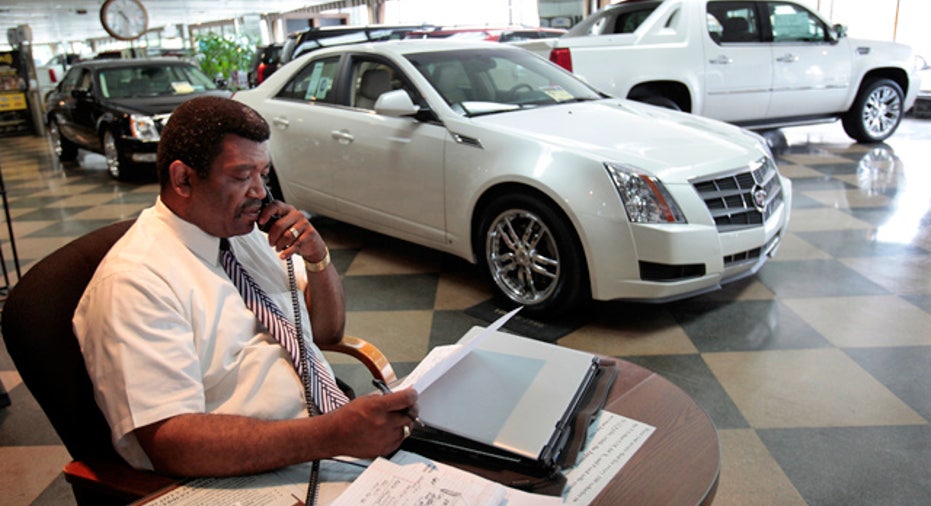The Danger of Canceling Your Car Insurance

It sounds like a clever way to save money: simply cancel the insurance on a car you're not using, at least for the time being. Even a six-month break on a $1,000 annual car insurance premium will net you $500, enough for many gas-tank fill-ups once the car is back on the road.
If only life and auto insurance were that simple. Instead, deciding to temporarily cancel your insurance creates several hurdles to overcome, such as:
*State laws that require you to cancel the registration if you suspend insurance, even for a week.
*The risk of paying out of pocket to cover any damage to the car, even if it occurs when the vehicle is parked.
*Insurance companies ready to jack up your rates for having a lapse in coverage.
And remember, if you still owe money on the car, the bank is going to require coverage to protect its investment. For example, if you have a car loan, your lender generally will require you to purchase collision and comprehensive coverage.
"They're going to have their own requirements regarding what kind of coverage has to be in place," says Kip Diggs, a spokesman for State Farm.
Because canceling your insurance may also kill your dreams of cheap auto insurance, you are often better off maintaining at least minimum levels of coverage even if you do not plan to drive your car at all for a period of time.
"We don't advise people to drop all their coverage," says Misti Renteria, a spokesperson for USAA.
Before temporarily canceling your insurance, consider these roadblocks to make sure that doing so will be worth the time, cost and risk.
Know your state's laws
If you decide to drop insurance, make sure you don't drive your car not even once while you are uncovered.
Every state except New Hampshire requires drivers to carry a minimum amount of liability insurance. Not only is driving without car insurance illegal in most states, but it's also potentially ruinous to your finances.
If you cancel your insurance, then decide to drive your car, you'll be on the hook for any damages that occur in an accident. If you seriously injure or kill someone, you could face a huge lawsuit and no insurance coverage to pay the damages.
Before canceling insurance, consult your state's department of motor vehicles. Many states also require you to drop your vehicle registration if you cancel your insurance. Often, you'll have to turn in your license plates.
"If you want those license plates, you're going to have to have at least the minimum level of coverage," Diggs says.
When you re-instate insurance and re-register, you may have to pay "back taxes" and new registration fees.
If you fail to remit registration while uninsured, you could be fined. Some states fine by the day, even if the car is sitting in a locked garage while you're visiting relatives in another state.
Get caught driving without insurance and you'll also be fined, sometimes thousands of dollars. In addition, your license may be suspended.
The rules are a bit different if you are in the military. Most states waive fees as well as insurance premium hikes for military members who cancel coverage while deployed. But if you're not in the military, weigh the potential consequences before temporarily canceling car insurance. Other alternatives may make better sense.
"If the car's not going to be driven, talk to your agent. You can drop to the minimum level of liability coverage when it's in storage," Diggs says.
Damage to your car
Canceling your insurance also leaves your car and your wallet unprotected if damage occurs.
A falling tree branch or hail storm can inflict thousands of dollars in damage on a car parked in a driveway. A thief can steal your car or damage it, even if it is parked in a garage.
If the car's not covered when such an incident occurs, you alone will eat the cost. Don't expect sympathy or a check from your insurance company, even if you canceled just the day before or planned to reinstate your insurance after a short period of time.
Your car isn't the only thing at risk after you cancel your insurance. Nearly all insurers provide multiline discounts that reduce your rates if you have multiple policies from the same company. Cancel the auto insurance and you may be surprised to see your home insurance premium rise.
Also, if you have a lapse and then decide later to reinstate your coverage, you'll likely pay a higher auto premium than if you had continuous coverage. That's true even if you buy from an insurance company other than your previous insurer.
While the money you save during the policy break may offset these latter costs, make sure you talk to your agent and do the math first.
Related topics:
The original article can be found at Insurance.com:The danger of canceling your car insurance



















